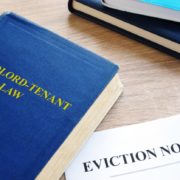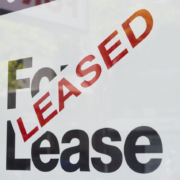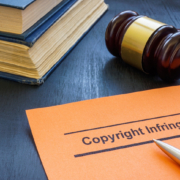Over the past few weeks, The Orlando Law Group has received multiple calls from business owners who have been subject to workers’ compensation investigations by Florida officials.
In each case, investigators walk into a business and ask to review all documentation as to how individuals are being compensated – to see if they are truly covered under workers’ compensation law or not.
At the heart of the issue is whether an individual is an independent contractor or an employee. Generally, an employer is not required to carry workers’ compensation for independent contractors.
What is happening, however, is that investigators are finding a significant lack of documentation as to an individual’s status and some businesses are threatened with shutting down the business until documentation on employment status can be provided.
That’s a position no business wants to be in, but it doesn’t have to happen when you have the proper documentation for independent contractors.
The Orlando Law Group can help review all the required documentation for independent contractors and employees to ensure you comply if a state investigator decides to review your business practices.
What is an Independent Contractor?
It is fairly easy to identify an employee of a business.
They get a regular paycheck.
They are told what they need to do in their job.
The company covers business expenses and provides employees with the tools they need to accomplish a job, like a computer and business cards.
Taxes are taken out of their paycheck and the individual may be eligible for employment benefits.
An independent contractor should be straightforward, yet many businesses confuse the line.
In a nutshell, a business using an independent contractor does not influence how the contractor performs a job, it cannot tell the contractor when they must work and certainly does not take out taxes or provide employment benefits.
Unfortunately, many businesses try to slide the rules a bit. They may provide a business card to an independent contractor or a list of potential sales customers to target. They may pay in cash or try to enforce hours.
All of that might get a company in trouble if they were investigated by state or even federal officials.
How Do You Classify an Independent Contractor?
For many businesses, using independent contractors can be advantageous. There is a lower cost associated with taxes and employment benefits. Termination is significantly easier and usually spelled out in a contract.
According to state statute, to classify someone as an independent contractor, four of the following six criteria for an independent contract must exist :
- the independent contractor maintains a separate business with his or her own work facility, truck, equipment, materials, or similar accommodations;
- the independent contractor holds or has applied for a federal employer identification number unless he or she is a sole proprietor who is not required to obtain a federal employer identification number under state or federal regulations;
- the independent contractor receives compensation for services rendered or work performed and such compensation is paid to a business rather than to an individual;
- the independent contractor holds one or more bank accounts in the name of the business entity for purposes of paying business expenses or other expenses related to services rendered or work performed for compensation;
- the independent contractor performs work or is able to perform work for any entity in addition to or besides the employer at his or her own election without the necessity of completing an employment application or process; or
- the independent contractor receives compensation for work or services rendered on a competitive-bid basis or completion of a task or a set of tasks as defined by contractual agreement unless such contractual agreement expressly states that an employment relationship exists.
Furthermore, state statute says that if four of the above scenarios is not met, you may still have an independent contractor if that independent contractor satisfies any of the following conditions:
- performs or agrees to perform specific services or work for specific amounts of money and controls the means of performing the services or work,
- incurs the principal expenses related to the service or work that he or she performs or agrees to perform,
- is responsible for the satisfactory completion of work or services that he or she performs or agrees to perform,
- receives compensation for work or services performed for a commission or on a per-job basis and not on any other basis,
- realizes a profit or suffer a loss in connection with performing work or services,
- has continuing or recurring business liabilities or obligations, or
- the business’ success or failure is dependent on the relationship of business receipts to expenditures.
What Happens if a Business isn’t Compliant?
In all seriousness, a small business may have to close its doors if an agency finds that it is treating employees as independent contractors.
In the calls we’ve received from business owners, the state has issued stop-work orders against the business when it could not demonstrate it in fact uses independent contractors.
The reason for that is employees should be covered by workers’ compensation insurance. And the state does not forgive a business for misclassifying its workers.
Even if the company is not forcibly shut down, the financial implications are significant.
In addition to fines, a company can be ordered to pay back wages and taxes for misclassifying. And, in other states, a business owner can be sentenced to jail time as well. For instance, this April, a concrete contractor in Virginia was ordered to pay $1.2 million for improperly classifying employees. Last year, a drywall contractor in Wisconsin was fined nearly $600,000 and sentenced to 18 months in prison.
You don’t want that to happen to you.
As soon as you can, schedule a review of your independent contractor relationships with an attorney from The Orlando Law Group. We’ll review your situation to see if you are compliant and can provide proper direction.
The attorneys at The Orlando Law Group can help businesses with these types of issues in Orlando, Waterford Lakes, Altamonte Springs, Winter Garden, Lake Nona, St. Cloud, Kissimmee, and Central Florida.
If you have questions about anything discussed in this article or other legal matters, give our office a call at 407-512-4394 or fill out our online contact form to schedule a consultation to discuss your case. We have an office conveniently located at 12301 Lake Underhill Rd, Suite 213, Orlando, FL 32828, as well as offices in Seminole, Osceola and West Orange counties to assist you.
The articles on this blog are for informative purposes only and are no substitute for legal advice or an attorney-client relationship. If you are seeking legal advice, please contact our law firm directly.



































